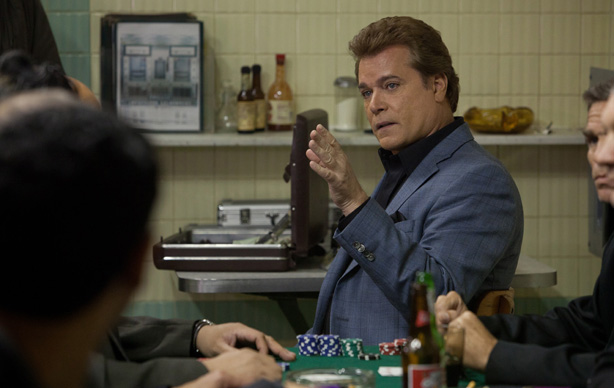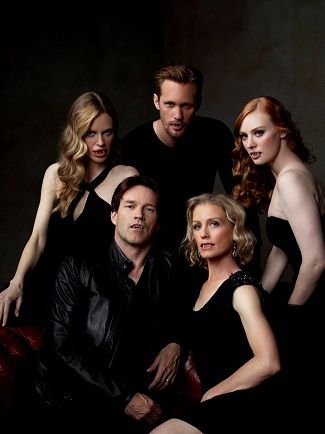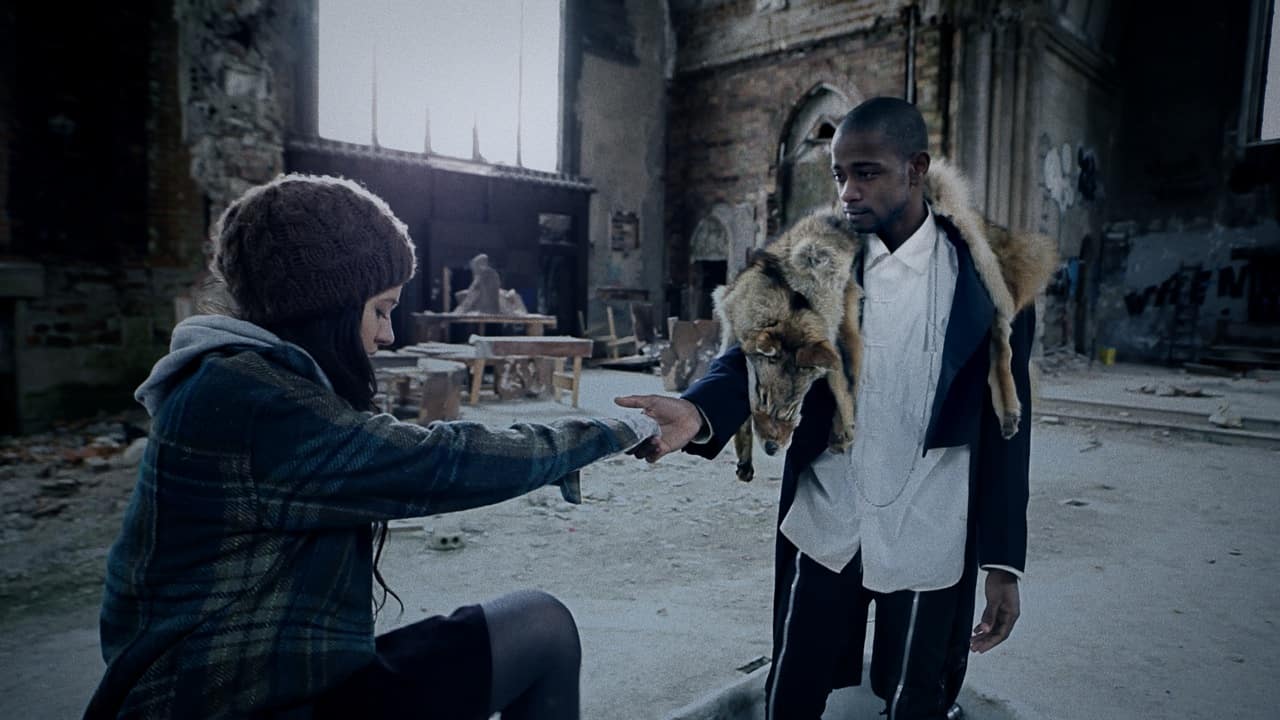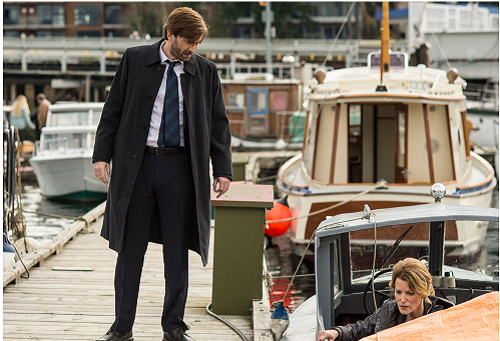Directed by Andrew Dominik
Written by Andrew Dominik
USA, 2012
Four years after the United States economic bailout, the fallout has not abated, either among those in the 1% of earners or everyone else. And now that we have a bit of distance from the immediacy of the tanking economy, we can look to popular culture to comment upon it; if we’re lucky, movies, books, TV shows, and pieces of music can do so intelligently and insightfully. With his new film, Killing Them Softly, writer-director Andrew Dominik isn’t able to balance a New Orleans-set crime drama with a sharp, pointed commentary on how the economy got so bad through gross negligence and exploitation. Despite the heavyhanded underlying message, however, Killing Them Softly is a tough, spare, and compelling crime drama.
A small-time crook working out of a dry cleaner hires two younger thugs (Scoot McNairy and Ben Mendelsohn) to rob a Mob-enforced poker game run by Markie Trattman (Ray Liotta), who tried to rob the game himself a short while ago. Though the initial heist is successful, the mysterious benefactors at the top of the crime syndicate want whoever’s responsible for the theft brought to justice. With longtime enforce Dillon (Sam Shepard, in a blink-and-you’ll-miss-him role) out of the picture, it’s up to Jackie Cogan (Brad Pitt) to clean up the situation smoothly and efficiently.
All of this is set against the backdrop of the 2008 U.S. presidential election between Senators John McCain and Barack Obama, specifically their dispute over how President George W. Bush bailed out the economy that fall. Dominik attempts to make direct parallels between how the corporatization of America led to the disastrous autumn of 2008, but making such a clear connection ends up hampering Killing Them Softly’s overall effect. We’re too busy wondering why a group of illicit poker players would have a presidential press conference playing in the background of their game, as opposed to focusing squarely on Dominik’s intended sly point of view.
Still, when Killing Them Softly moves away from American politicians speechifying, it’s a crackerjack thriller, a welcome throwback to 1970s-era crime dramas that took place in the smoky shadows, populated with craggy-faced leads who never had to raise their voice. In that respect, Dominik pays pure and accurate tribute to Cogan’s Trade, the novel by George V. Higgins upon which the film is based. (Higgins also wrote The Friends of Eddie Coyle, which was adapted into a similarly excellent pulp noir starring Robert Mitchum in 1973.) This film shines most when it focuses on the colorful, neo-Runyonesque characters who populate a seedy, grungy world of vice and greed. And Dominik deserves credit for not immediately giving Pitt the spotlight. Though Cogan is the center of the film, he doesn’t show up for a good 20 minutes or so, appearing only when he’s needed by his boss’s boss.
Pitt’s fine as Jackie, a terse character who’d clearly be a better, smoother operator if it weren’t for all the red tape he had to cut through. However, in a weird way, Pitt sticks out here, feeling a bit like an interloper. Everyone else in the movie either looks exceedingly world-weary or worn down; Brad Pitt looks like…well, Brad Pitt, just with slicked-back hair and a goatee. He’s acceptably low-key and shrewd, but he doesn’t look like he’s lived a full life as a criminal as much as his compatriots do. Richard Jenkins is well cast as Driver, the corporate stooge who serves as a go-between for Cogan and the people who hold the purse strings. They’re not big names, but McNairy and Mendelsohn (previously seen in Argo and The Dark Knight Rises, respectively) make a big impact as the low-level crooks who get in way over their heads by stealing from that poker game in the beginning. They shoulder most of Killing Them Softly’s first act, and do so quite well. McNairy, in particular, is a standout, pretty much stealing the film as a jittery, nervous, smart, but not smart enough lowlife.
Killing Them Softly is, at times, truly special, both absorbing and beautiful to look at. (Dominik, who directed The Assassination of Jesse James by the Coward Robert Ford, didn’t collaborate here with that film’s cinematographer, Roger Deakins, but Greig Fraser is a fine replacement behind the camera.) Anchored by a series of honest, wounded, and gruff performances, the film manages to play on a small scale but make the actions within it feel epic. In short, Killing Them Softly is an exceedingly enjoyable, entertaining crime drama; had it not been for the unsubtle political overtones, this could’ve been one of the best of 2012.
— Josh Spiegel







